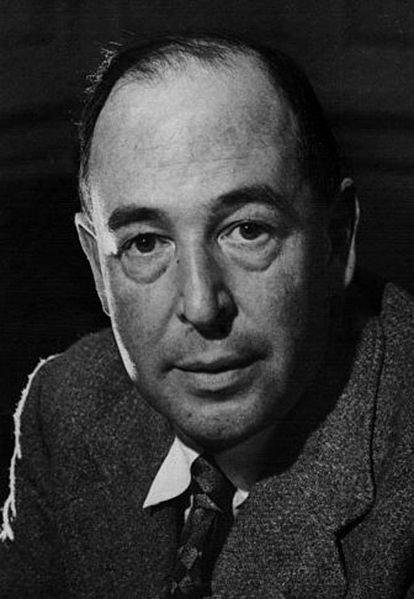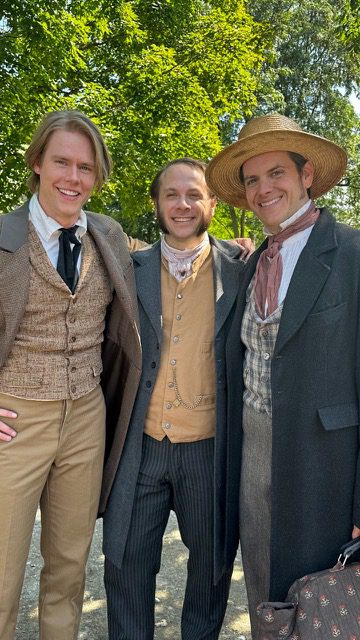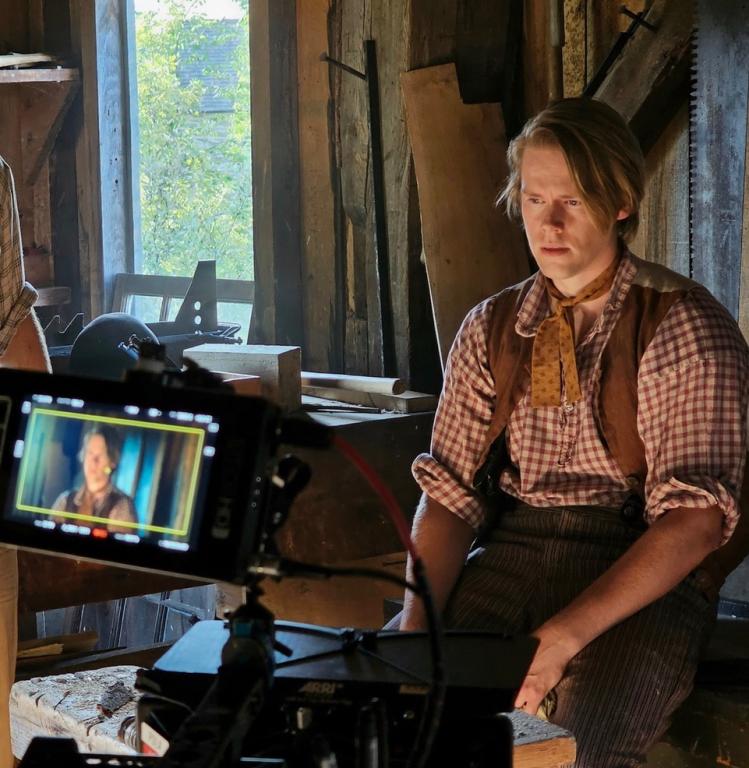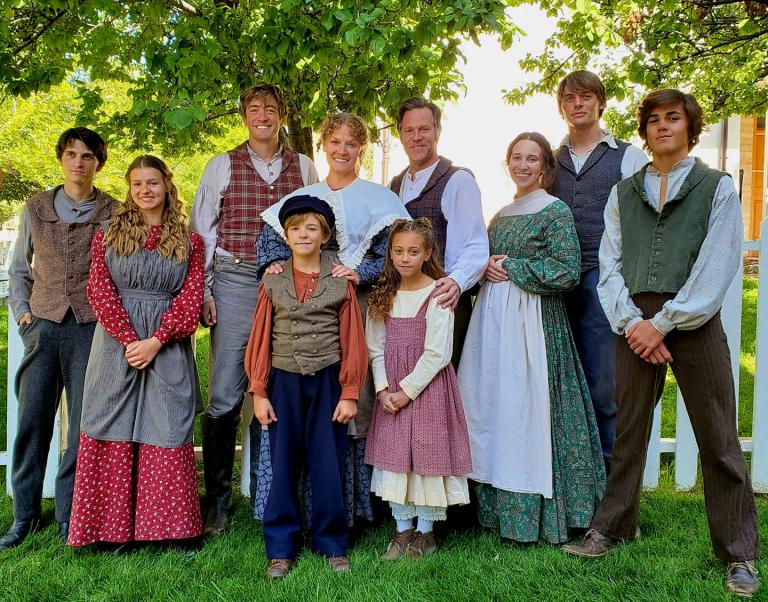
Mark Goodman, James Jordan, Russ Richins, and I had already been talking, while we were still working on Witnesses and Undaunted: Witnesses of the Book of Mormon, about what, if anything, we would like to do next. We were actually pretty sure that, if we could, we wanted to do another film. But what should be its theme?
One proposal that we discussed quite seriously — I recall that our first conversation about it arose during a long drive from New York City, where we had interviewed Richard Lyman Bushman for Undaunted, down to Fairfax, Virginia, where we were going to interview John Turner — was to do a film about the conversion of C. S. Lewis to Christianity. It’s a story that Lewis himself had told in his 1955 book Surprised by Joy. I was instantly thrilled with the notion. I recall saying to them, “You do know, don’t you?, that I’m a C. S. Lewis fanatic.” “We know,” one of them replied. “That’s why we thought that you would like the idea.”
However, in 2021, the same year in which Witnesses appeared, Fellowship for Performing Arts — a group whose work and mission I greatly admire — premiered its film The Most Reluctant Convert: The Untold Story of C. S. Lewis. It checked every single box of the film that I myself had conceived, and it did so very, very well. Time after time, I would think to myself as I watched it, “Okay, at this place I would make this point” or “Right now, I would make such and such an argument.” And, just about every single time, The Most Reluctant Convert made exactly that point or offered the very argument that I had had in mind.
I could see no purpose in making the film of which I, at least, had conceived. It had already been made, and it had been made very beautifully and effectively.

My filmmaking friends, however, were not at all downcast. They immediately came up with another idea for a film. How about, they said, doing one on the August 1844 succession crisis? This difficult time in Church history pitted Sidney Rigdon against the Twelve, and, in particular, against the president of the Twelve, Brigham Young.
I agreed, realizing that this would be a very dramatic story, and that it was an important one to tell. I will frankly confess, though, that it didn’t seem so exciting to me, or of such pivotal, foundational significance, as the story of the witnesses to the Book of Mormon.
But I’ve changed my mind.

Why? I’ve grown more and more concerned as I’ve seen Brigham Young vilified, demonized, and thrown under the bus even by a few active, believing members of the Church of Jesus Christ of Latter-day Saints. And I’ve felt, more and more, the personal obligation to stand up and be counted as one who admires him and who is willing to defend him.
For the better part of two centuries, for instance, Brigham Young has been pronounced responsible for the atrocity known as the Mountain Meadows Massacre, despite the work of historians such as Juanita Brooks and, much more recently, Ron Walker, Rick Turley, and Glen Leonard. Such accusations continue.
He’s been denounced as a racist, to the point where some, at least, have even demanded that the three Church-owned universities that bear his name be rechristened, and that he be, to the extent that he can be, “erased.” However, while it is true that he said some things about race that make us cringe today, the same is true of Abraham Lincoln, the Great Emancipator, and — I recently read David McCullough’s biography of Harry Truman — of the modern American president who integrated the military and pushed some of the earliest civil rights legislation. And Brigham’s record contains some surprisingly positive elements, even with regard to racial issues, that shouldn’t be overlooked.
LORD POLONIUS: “My Lord, I will use them according to their desert.”
HAMLET: “God’s bodykins man, better. Use every man after his desert, and who should ‘scape whipping? Use them after your own honour and dignity. The less they deserve, the more merit is in your bounty.”
Brigham Young has been declared a vicious misogynist. And, since at least the days of the sensationalistic dime novels of the nineteenth century, and carried on by Zane Gray and his tales of the “Danites,” he has been labeled a murderer and an assassin. Recently he has even been accused of leading an apostolic coup to seize control of the Church and, no less, of having ordered John Taylor and Willard Richards to kill Joseph and Hyrum Smith in Carthage Jail.
Accordingly, I began quite some time ago to regard our decision to make Six Days in August as an inspired one and a timely one, quite beyond my wisdom or that of my filmmaking associates. Along with the materials that we hope to make available on the film’s website and the academic interviews that we continue to record and that we will incorporate into a docudrama sequel to accompany Six Days and turn into short video features, we are attempting, in our modest way, to reintroduce Brother Brigham to members of the Church that he led from 1844 to 1877.
You will also see entries here that will call attention to readings and facts about Brother Brigham with which I think people should be familiar.

Here’s an item that I’ve retrieved from the Christopher Hitchens Memorial “How Religion Poisons Everything” File™. Specifically, I found it in the Jewish magazine Mosaic: “Orthodox Jews, Mormons, and Why Fertility is Contagious.”
If you abhor humans as carbon-footprint-bearing, virus-carrying heterosexual breeders that have overrun our planet to an unacceptable degree, you will recognize the abominable character of the idea that there should be yet more of them.













